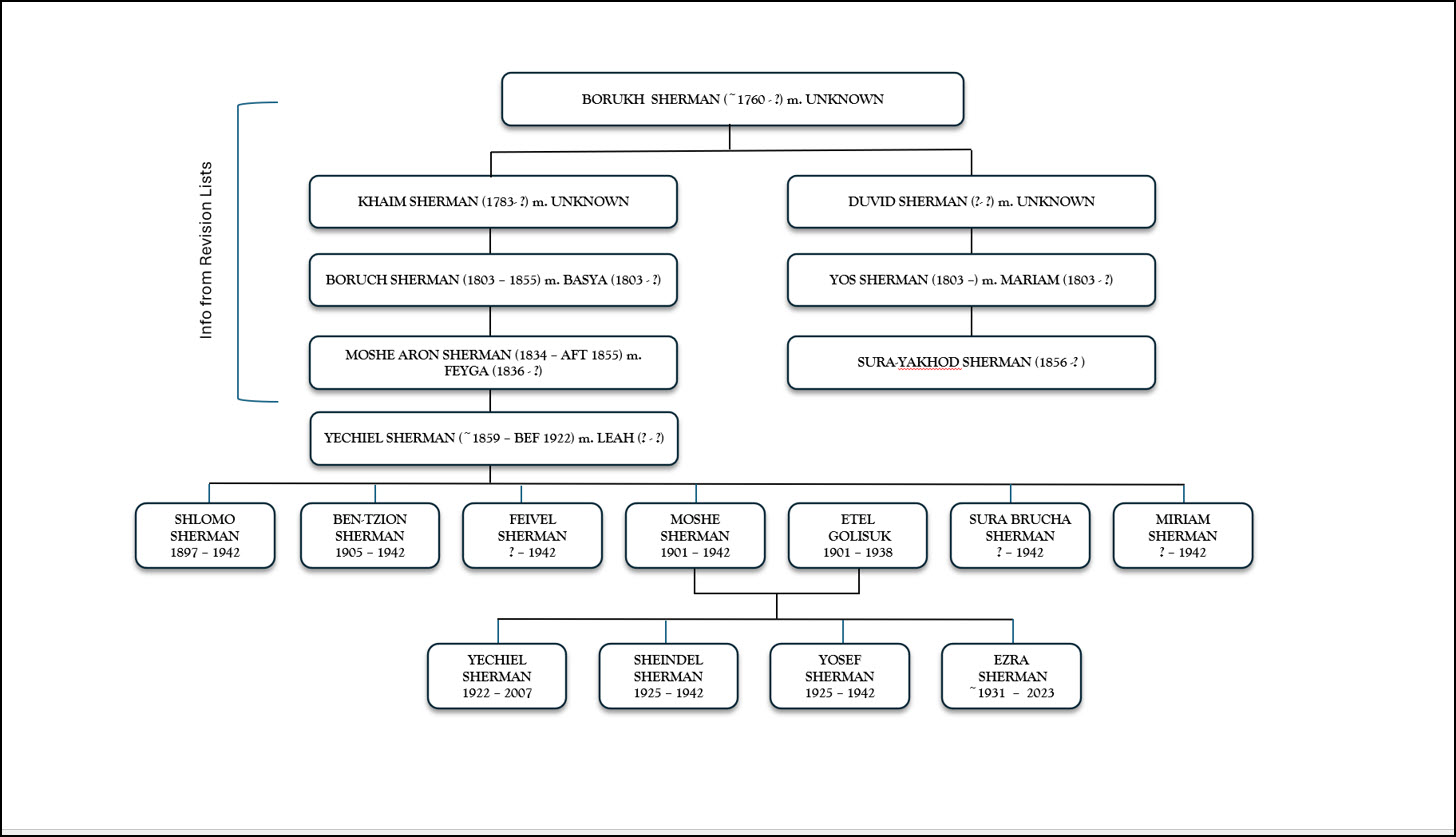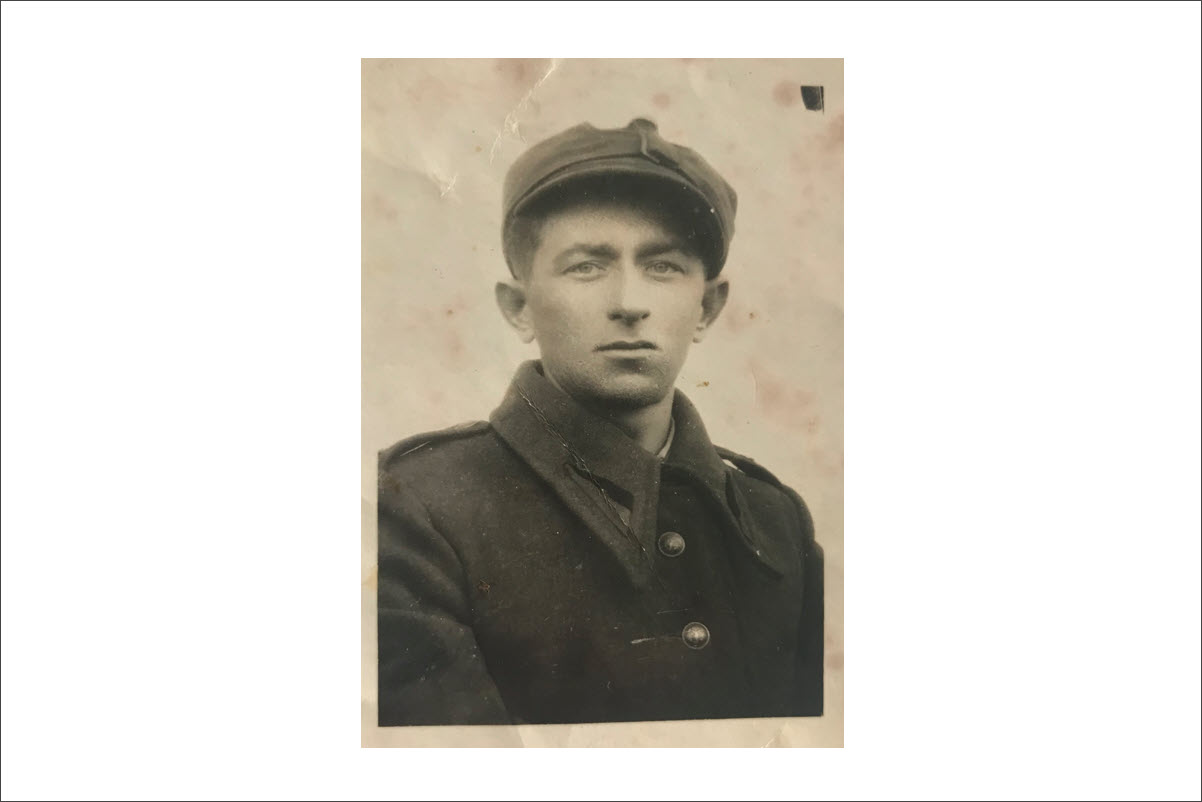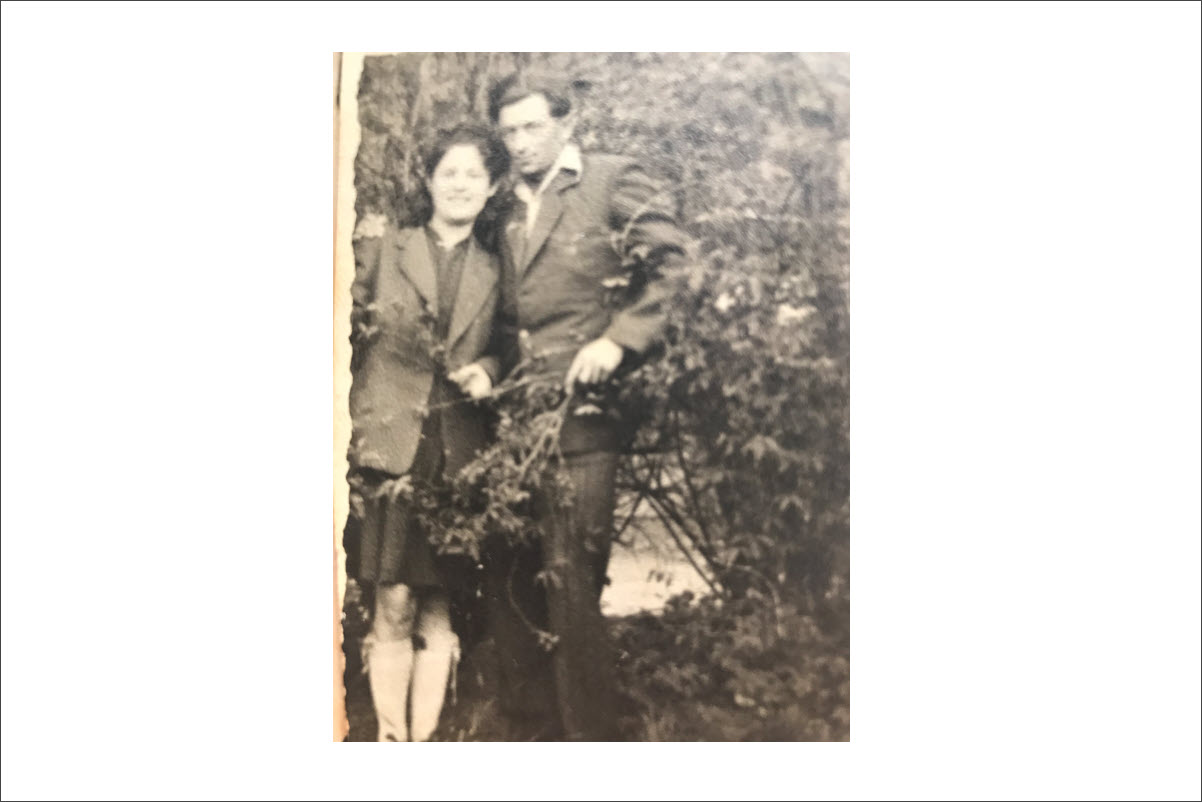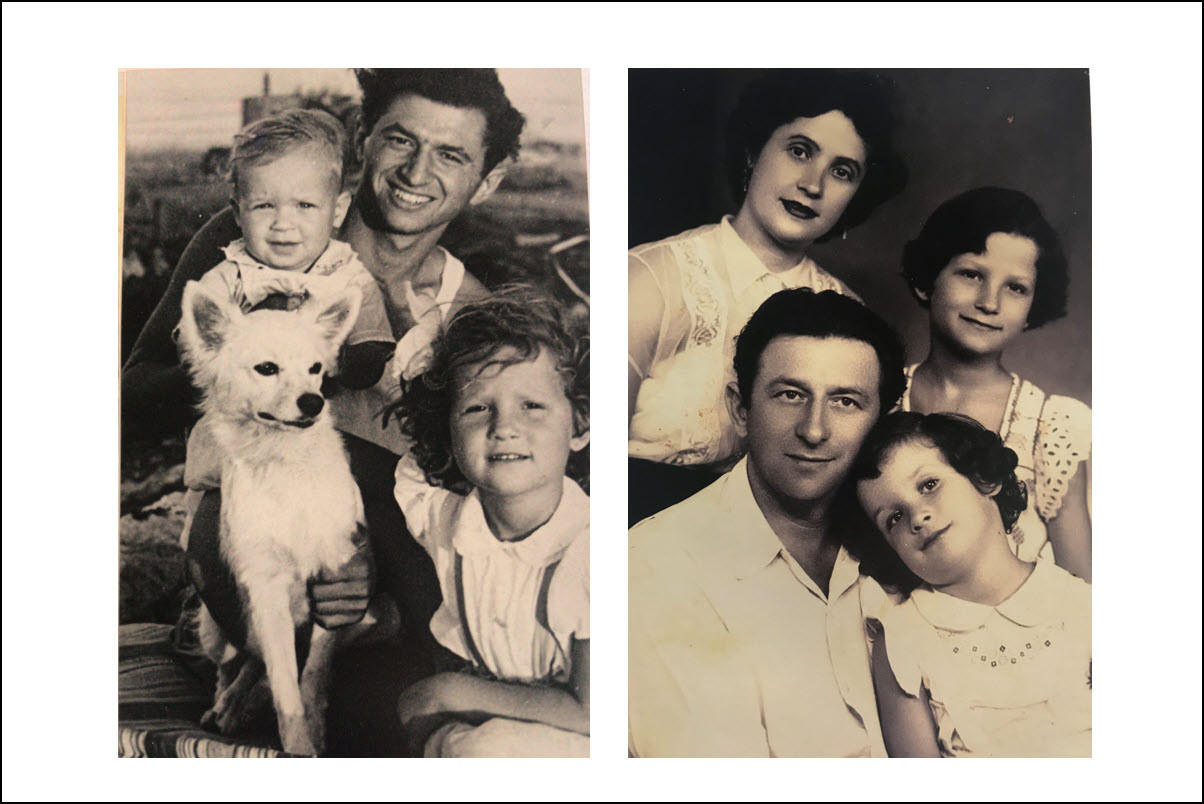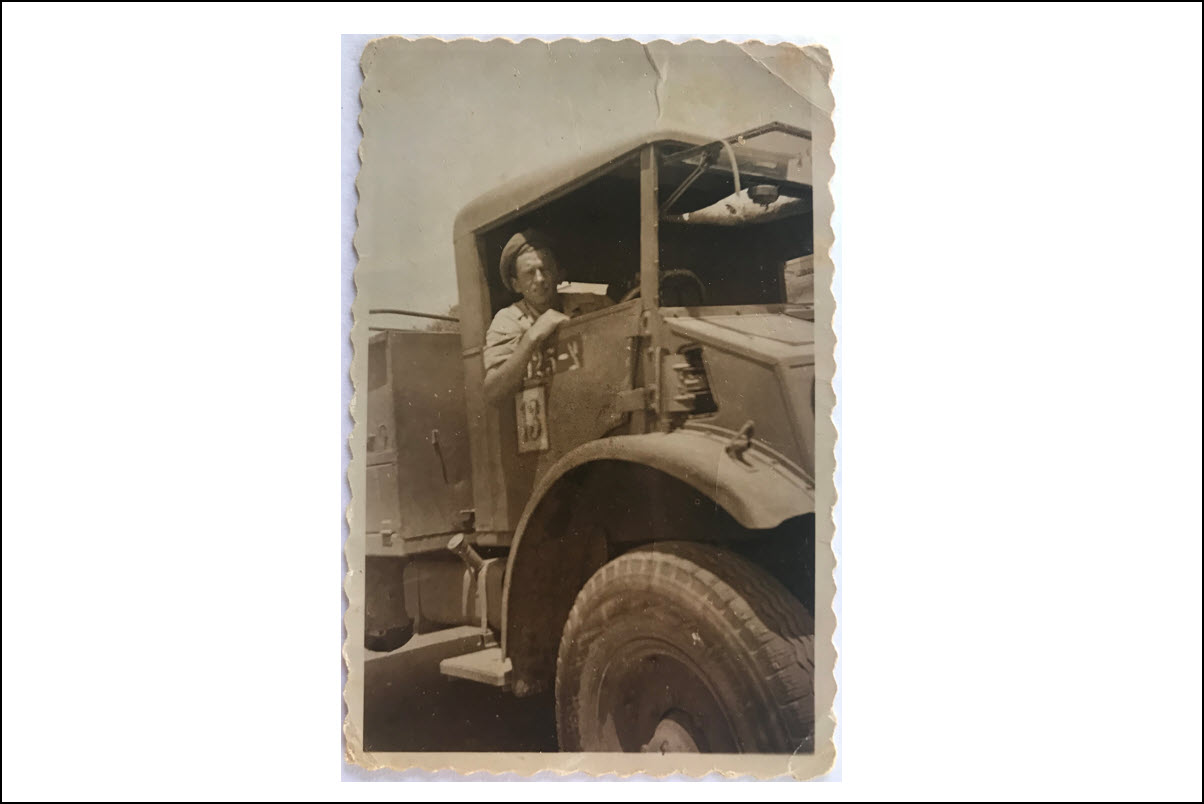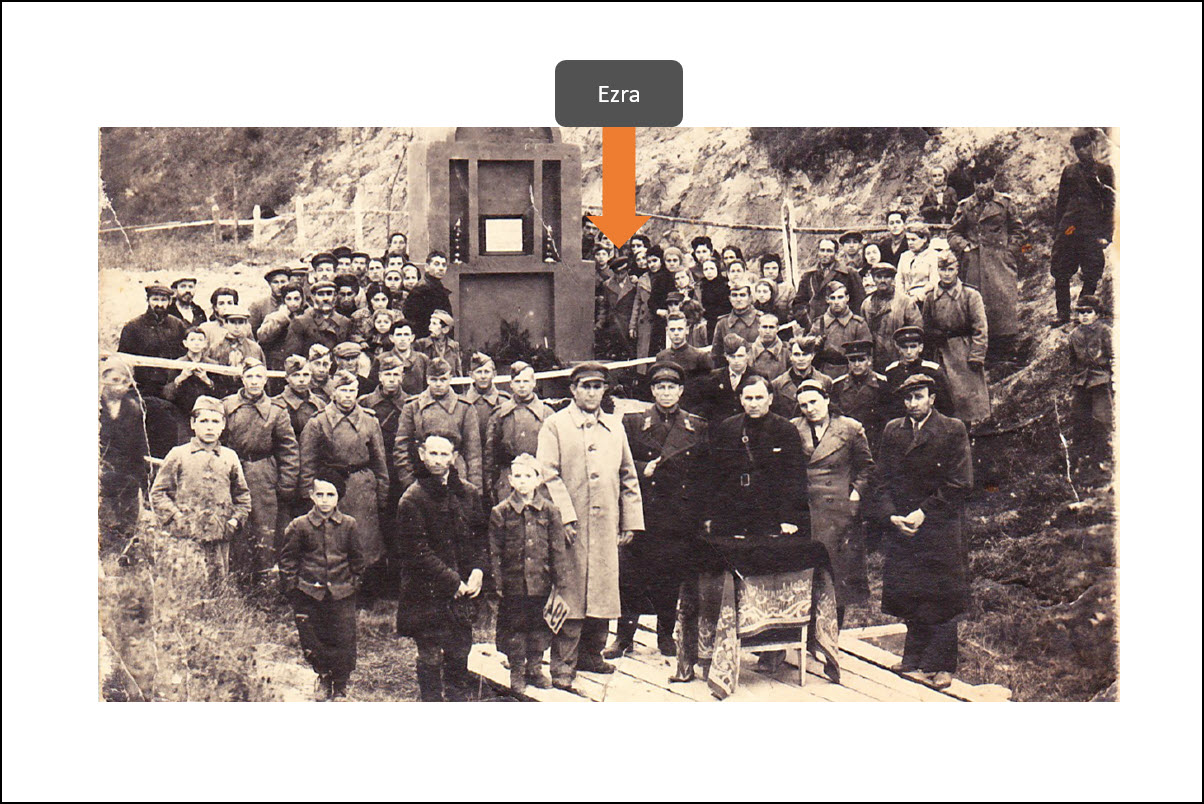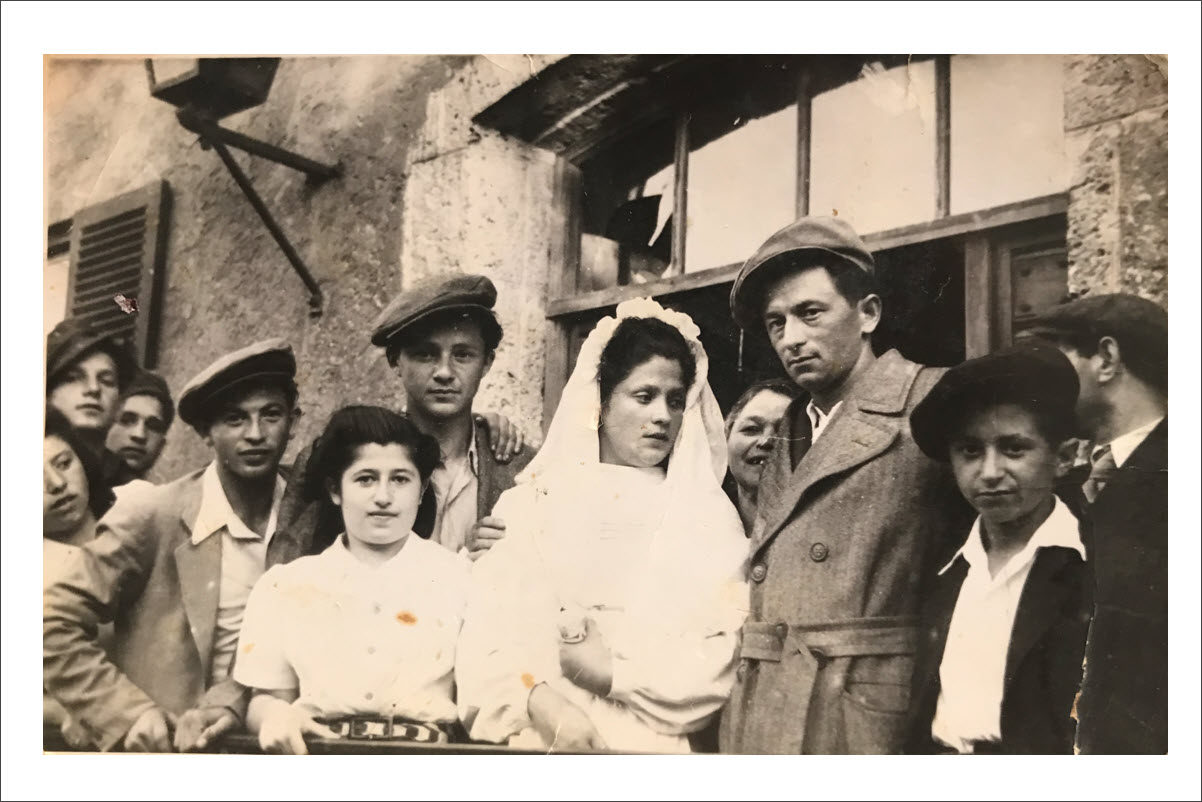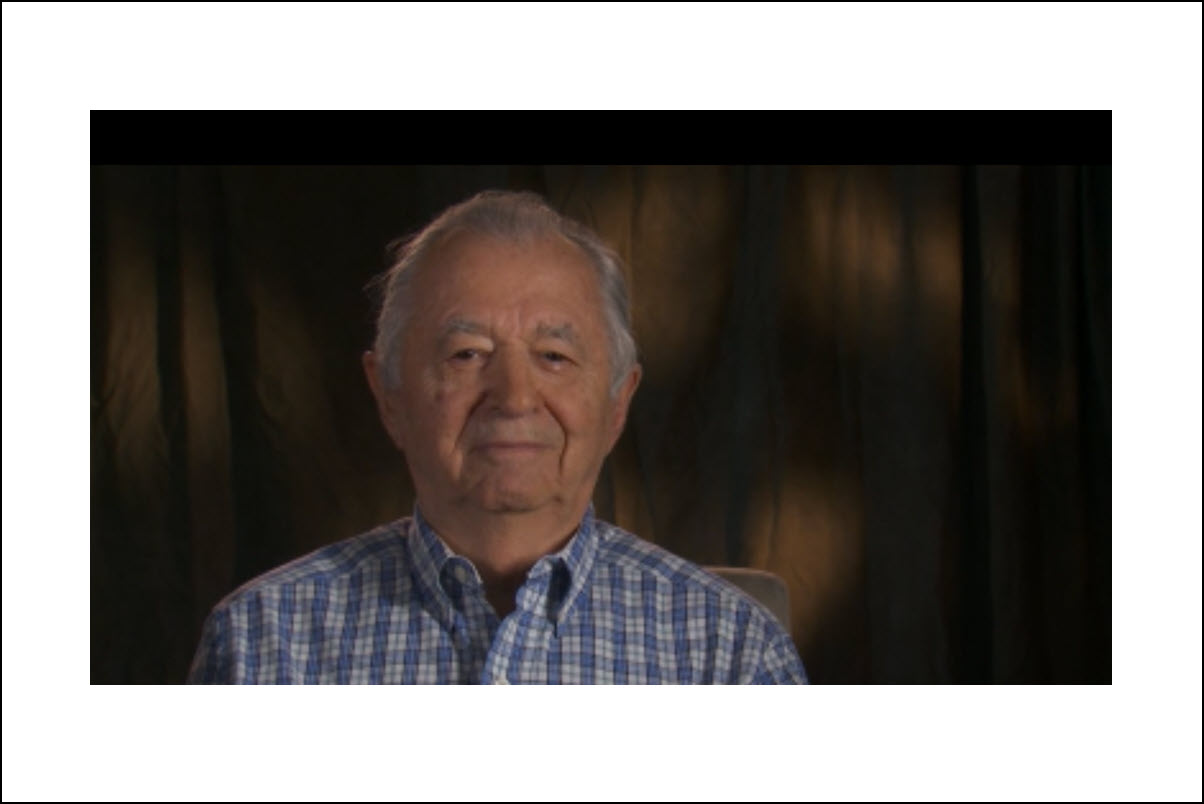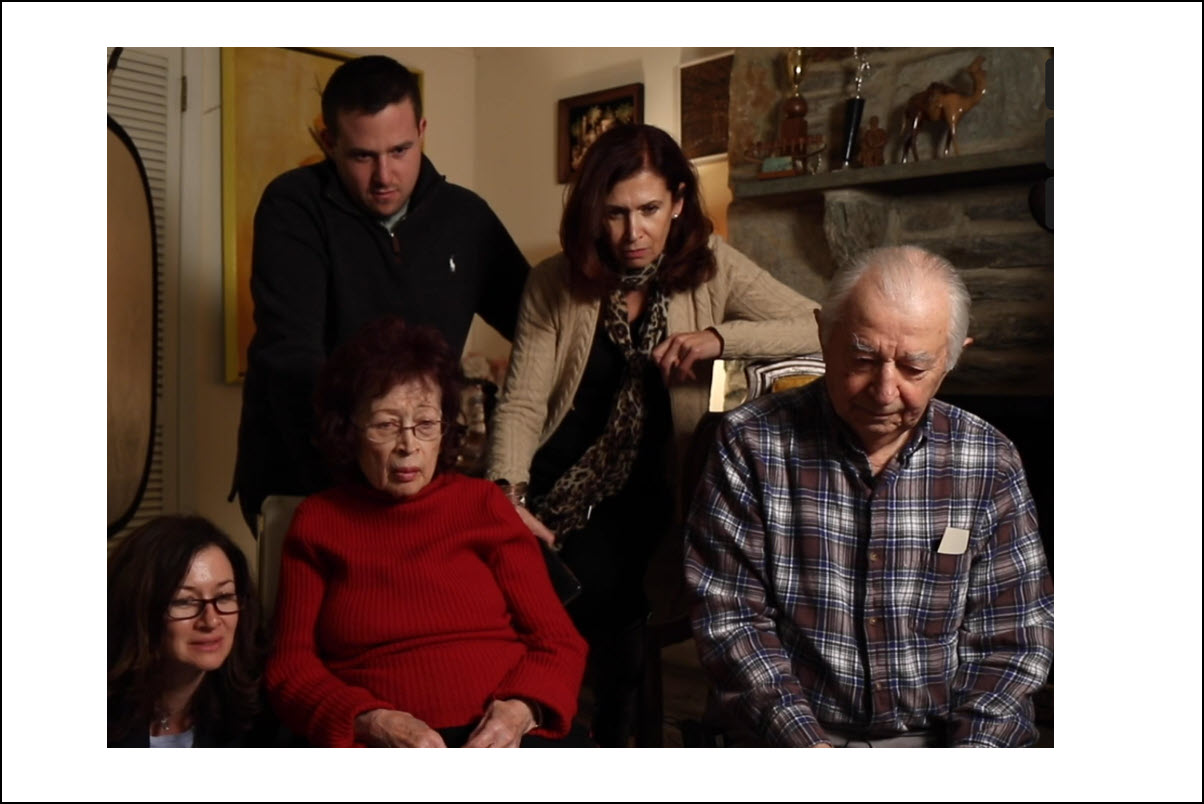-
Home
Home About Network
- History
Nostalgia and Memory The Polish Period I The Russian Period I WWI Interwar Poland 1944 Memorial Commemoration- People
Famous Descendants Families from Mlynov Ancestors By Birthdates- Memories
. The Sherman Family Story from Mervits

***
The Sherman Family in Mervits
Ezra and Yechiel's father, Moshe Sherman, was likely a descendant of the Sherman family listed in two households in the 1850 and 1858 revision lists of Mervits. A man named Moshe-Aron Sherman, who was born in 1834, appears in both revision lists. He probably was the grandfather and namesake of the younger Moshe Sherman, who was born in Mervits in 1901. If this is correct, then we can reconstruct quite a bit more about the earlier history of Sherman family from Mervits.
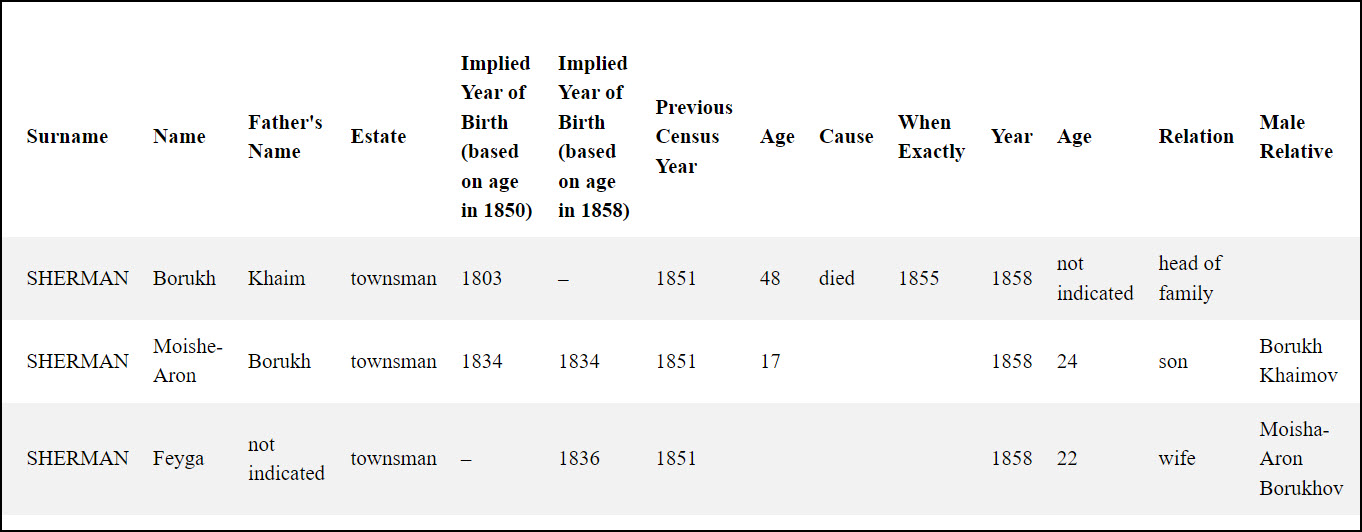 The Sherman household #3 in the 1858 revision.
The Sherman household #3 in the 1858 revision.In 1858 (household #3), Moishe-Aron (the great-grandfather of Ezra and Yechiel) was 24 years old with an implied birth year of 1834. He was son of a man named Borukh son of Khaim (also called Borukh Khaimov) who was born in 1803 and who passed away just three years earlier in 1855 at the age the age of 52. We can surmise that Borukh’s father, Khaim, probably was born in about 1780 and that the family may have been in Mervits when the area became part of Russia in the Second Partition of Poland.
In the 1858 record, Moishe-Aron was married to a woman named Feyga, age 22, but no children are listed yet. If this Moishe-Aron is in fact the great-grandfather of Ezra and Yechiel, then his son Yechiel (namesake of the grandson Yechiel) was born sometime after 1858.
Both Moshe-Aron and his father, Borukh son of Khaim, also appear in the earlier 1850 revision. There Moshe-Aron is 17 and not yet married. He married sometime between 1850 and 1858. Moshe-Aron’s father, Borukh, apparently was missing in 1849 according to the same record but reappeared in 1851 when a supplemental revision was done. He was 48 years old and is married in this record to a woman named Basya, age 47. There was also a female relative of Borukh in the household (possibly a daughter) but the details are not provided.
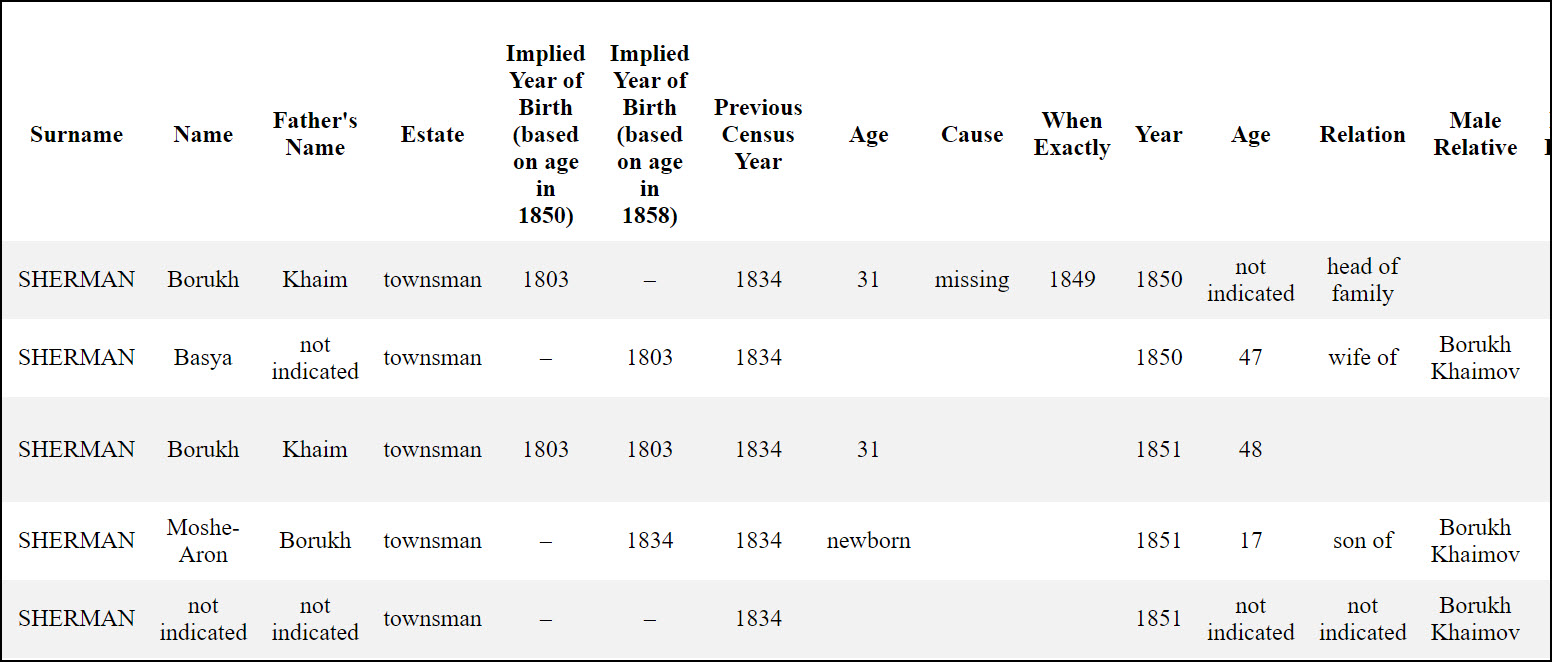 The Sherman household #3 in the 1850 Mervits revision.
The Sherman household #3 in the 1850 Mervits revision.It appears that Borukh's father, Khaim Sherman, was listed in 1850 in household #125 even though he passed away in 1839 at the age of 56. This is probably because the only other male in household was too young to be listed as head of household. That was Khaim's nephew, a man named Yos Sherman (son of Duvid) who was living in the household alone at the age of 16. Since Yos is a nephew of Khaim, we can surmise that Yos's father, Duvid, was apparently Khaim's brother. There is no additional information about Yos's father Duvid. But Yos does appear in 1858 in household #121 married with a child of his own.
Based on these records we can reconstruct the Sherman family tree.
***
Moshe and Etel Sherman
By 1922, Ezra and Yechiel’s father, Moshe Sherman married a Mlynov-born woman named Etel Golisuk. Etel’s father was Yaakov Golisuk (alt. spelling variation Golysuk) from a family with many siblings. Etel’s mother was born Hannah Schuchman, from the Schuchman family line, which is well documented. For this reason, the Schuchman and Sherman family lines are related.
Ezra and Yechiel’s grandmother, Hannah, worked as a seasonal fruit merchant to support the family while her husband studied Torah. She would rent orchards, pick the fruit and store it on the roof of her home and sell it to shop owners.
According to family memories, Hannah’s husband, Yaakov Golisuk, went to Baltimore with his wife’s brother Jossel (Joseph) Schuchman, who migrated to Baltimore in August 1913 with another Mlynov man named Yosel (Joseph) Lerner. Yaakov Golisuk does not appear on the manifest next to either of these men and it is not known exactly when he arrived in the US or returned home. According to Yechiel’s memories, Yaakov Golisuk returned to Mlynov when he learned that they burned their dead in America. Yaakov Golisuk died in Mlynov in 1936 at the age of 63. His widow, Hannah, was active in her grandsons’ care especially after their mother died in 1938.
Settling in Mlynov
Moshe and Etel settled in Mlynov after they married. Moshe made a living as a butcher and middleman selling and buying cattle. Ezra recalled that he would do business with the local Count and help him when he wanted to purchase horses. Yechiel remembered that his father would purchase calves and cows on market days in Mlynov and resell them to store owners. The family home had stalls that often held a couple dozen animals before they were sold or slaughtered. One time Yechiel was left in charge of the butcher shop when his father was at the market purchasing more animals. He made a purchase of an animal from a farmer and his father was pleased by his business judgment. After that, Moshe had no hesitation letting Yechiel manage when he was at the market.
Yechiel remembered that his father Moshe was ideologically a committed Revisionist, following the fiery Zionist political philosophy of Ze'ev Jabotinsky. While still a boy, Yechiel followed his friends into the Revisionist youth group, Betar, but he was not particularly devoted to the ideology at the time.
The boys' mother, Etel, passed away in 1938 following an illness. Following her death, the family’s situation deteriorated. It was a tough time in general. Other Mlynov residents were suffering under new restrictive laws in place by the Polish government which was increasingly antisemitic in the late 1930s. Yechiel remembers that there were days when they didn’t have food to eat on the table.
Within the year of Etel’s death, matchmakers set up Moshe with another woman from Dubno and Moshe moved there to live with her. Initially the children stayed in Mlynov with their grandmother Hannah. Yechiel recalls that his father and his second wife had a son together.
Yechiel's Story During the War Years
WWII began in September 1939. Initially it appeared that Germany was intent on conquering all of Poland. However, based on the Molotov–Ribbentrop Pact, Russia attacked the Eastern part of Poland in mid-September. Within weeks, Mlynov was occupied initially by the Russians. According to Ezra’s memories, his father Moshe lost his livelihood during the Soviet Occupation as the Communists outlawed private business and began socializing industries. Moshe turned to the black market in kerosene and sugar among other commodities to support the family. Ezra recalled that his father also supplied horses to the Commandant of Dubno.
Yechiel who was a teen at the time didn’t like the new home life in Dubno and he returned to Mlynov to live with his maternal grandmother Hannah. Initially he worked collecting taxes for the Russians. Eventually he found better work in what had earlier been a local restaurant owned by a Czech family that was socialized during the Russian occupation. The Russian manager of the restaurant was a party member and had a Jewish wife. He liked the young Yechiel and put him in charge of the storeroom. He also invited him home for dinner and wanted to set him up with his daughter. Later, Yechiel ran into this same family on the road into the Russian interior as they fled the German attack the week of June 22, 1941, a fateful meeting that helped Yechiel survive. Yechiel recalls the period he worked in the restaurant, “I succeeded in the work. We made it all ourselves. We slaughtered pigs, prepared the meat for the restaurant, made sausages. I was responsible for the storeroom.”
While working in the restaurant, Yechiel was too young to become a Communist party member but he did join the Russian youth group, Komsomol, though again he was not ideologically motivated. During this period two Russian pilots, stationed at the airfield outside town, were billeted in his grandmother Hannah’s home. Yechiel siblings were back in Mlynov in 1941 and they were living with Yechiel in their original home next to their grandmother. Presumably, the blended family was not working out well in Dubno or the children longed for their friends in Mlynov. Yechiel was old enough to be supervising the house and assisting their grandmother. On June 22, 1941, the Germans broke the Molotov-Ribbentrop Pact and attacked Russia in Operation Barbarossa. The pilots asked Hannah to flee with them, but she and her sister didn’t want to leave. They did not survive.
***
The Germans Attack
Yechiel was just getting dressed for work at 4 am in the morning, when he heard a loud, strange noise. It felt like the houses were moving on their foundations. He went outside but didn't see anything and began walking towards the town center where other residents told him that bombs had fallen on the Russian military airfield on the other side of the Ikva River. In spite of the bombings, Yechiel went to work that day. In the afternoon the Germans again bombed the airfield and this time several bombs fell on Mlynov itself. Several people died.
Yechiel headed home in the evening after work and found no one home. He got on his bike to search for his siblings but didn’t find them. He learned later that his brother Yoskah (Yosef) was killed in the bombing. He never learned what happened to his sister Sheindel but speculated that perhaps she headed back to their father’s home in Dubno. Ezra was missing too and it would be a while before Yechiel learned his fate.
Yechiel conferred with his grandmother Hannah and his other aunt. They decided to flee to the home of a Ukrainian acquaintance in the nearby village of Slobada, which was located within the perimeter of current day Uzyhnets. The man had room for them in his hayloft. Two other Mlynov families arrived as well. Yechiel was 18 years old at the time and he reasoned that there was no reason to wait for the Germans to arrive, especially as the Russians had already fled town.
Fleeing Mlynov
He and five other young men from Mlynov decided to flee towards the former Russian border. Yechiel recalls in the Memorial book that some of Mlynov residents including one of his friends tried to talk him out of his plan. “Only members of my family, among them my father Moshe Sherman, favored my fleeing,” Yechiel recalls in the essay he wrote for the Memorial Book. It is unclear how Yechiel rendezvoused with his father at this time and he makes no mention of receiving his father’s blessing in the later account in 2003.
Yechiel with four other young Mlynov men got on their bicycles and headed East. The other young men were Moishe Iskiewicz (alt. Isakovich), Kufta Gertnich (called Yosef Ganon in Israel), Yehuda Weiner and Moishe Weiner.
While they were riding, Yechiel spied a wagon and discovered the family of his manager from the restaurant. They were glad to see him and tried to convince him to go with them. But Yechiel wanted to stay with his friends and anyway, the bicycles were faster than the wagon. The manager’s wife asked him if he had enough money. When he told her what he had, she pulled out a package from under the straw which was full of money and handed some to him. The manager had taken the money box from the restaurant before they fled. That money sustained Yechiel for some time.
They traveled by bikes for 3-4 days. Yechiel ate the baked goods that his grandmother gave him before he left. On one occasion, as they neared a town, bombs from German airplanes dropped nearby, but they had cover of the forest and were not injured by the fragments. They eventually crossed the old Russian border and arrived in Zhitomir.
In the Russian Interior
In Zhitomir they left their bikes behind and took trains in the direction of Kiev. They switched trains as they went, jumping from one transport train to the next one heading east. Before Kiev, the boys lost track of each other. Only Moishe Weiner remained with Yechiel. Yechiel and Moishe ended up in Voronezh, East of Kharkiv, but still in Ukraine. There they found work for a time in the gypsum mines.
The two young men conferred and decided to leave the place and head to Kursk, which was closer to the front, where Moishe had an aunt. They jumped on a transport train that was carrying coal and were black from soot when they arrived in Kursk. It was July, two weeks after they left Mlynov. In Kursk, the two young men were greeted warmly by the family of Moishe's aunt where they showered and were given clean clothes.
Yechiel Remembered Family in Russia
In the meantime, Yechiel recalled that his grandmother, Hannah, had a sister, Ester, in Kursk, whose family name was Rivitz (alt spelling Rivyetz). She and her husband met in the underground and become socialists before WWI and had moved into the interior of Russia. The two sides of the family lost touch for many years while Mlynov was in Poland. When Russia occupied the area around Mlynov in 1939, the siblings reconnected again by letters.
While with Moishe's family in Kursk, one of the family members helped Yechiel locate the address and phone number of his great Aunt. Yechiel called her, and she knew exactly who Yechiel was. Within a half hour, Yechiel was visiting with her.
Several of Ester’s children were well placed in the Soviet government. Yechiel details many other experiences he and Moishe had in the interior of Russia, heading to Shklow to be with Ester’s daughter who was a train engineer, working in a collective farm (kolkhoz) in the Ural mountains, traveling to Tashkent to secure necessities, like fruit and vegetables, and to Fergana among other places.
***
Enlisting and Fighting in the Polish Army
In March 1942, Yechiel enlisted in the Russian Army. As a former Polish citizen, he was able to join a clandestine Polish army that was under the supervision of the Russian Army. He fought on the front until his unit met the American forces on May 10, 1945. At one point, while fighting on the front and advancing towards Germany, he was within traveling distance to Mlynov, which he managed to visit. His memory of that experience is searing:
I decided to get home whatever the cost. After three days of travel, I reached the entrance to the Mlynov forest. Even as I entered the town, I witnessed the great destruction the Germans brought about. I first entered the cemetery and saw that they had demolished it all. I looked for the gravestone of my mother, who had died already by 1938, whose burial location I knew — but I was not able to find anything; The Germans had taken the tombstones for paving sidewalks. I started to enter the town, along the way I stopped by each house, and thinking perhaps I'll find someone at home — but I found not a soul ... until I came to one Pole, a carpenter named Dimar; he had been living near Moshe Shakrov, the shoemaker. He didn't recognize me since I was in military uniform. He began to tell me the names of those who remained alive. All of them, I found at the home of the town's rabbi [Rav Gordon]. I found Tobeyshe [the rabbi's daughter], Getzel [Steinberg] and his brother [Mendel] from Mervits. And also Berel Rabinovitch and Shlomo Schechman; the other survivors already left for Rovno. (See "Taking Leave of Home," pp. 344-346).
None of Yechiel’s family were among the survivors so he said his farewell and returned to his military unit. He was already far from the town when he got a letter from Mlynov that his brother Ezra was alive.
You can download and read more details about Yechiel's journey or the essay Yechiel contributed to the Memorial Book, "Taking Leave of Home," pp. 344-346.
***
Ezra’s Story
After Yechiel fled to Russia, Ezra was still in Mlynov with his family. During this period Ezra recalls going back and forth from Dubno to Mlynov between his father and grandmother’s home. On at least one occasion in Dubno, Ezra witnessed a mass shooting from the window of his father’s house.
In May 1942, a ghetto with barbed wire was established in Mlynov. Ezra remembered learning to sneak through the fence to work for nearby farmers and bring money and food back into the ghetto for his grandmother. He was in the ghetto in early October when the inhabitants were lined up on the street. Ezra told a Ukrainian policeman he needed “to take a leak” and after getting permission to leave the line, he went around behind a shed and climbed up into its loft. A young girl named Micah appeared–Ezra knew her from school–so he pulled her up in the loft. The two children fell asleep hiding there. When they awakened in the morning, the Ukrainians were knocking down the interior walls of the homes looking for survivors. Ezra and Micah got down from their hiding place and slipped out of the ghetto which was now open.
They went first to Mervits where Ezra’s father had family. There they found a Polish man who had done business with his father and who recognized them. He was shocked to see them and urged them to go to the Smordva forest where other Jews were hiding. So Ezra and Micah went back on the road. They spied a home along the road and Ezra suggested they go in and ask for food. An older woman was there and told them to sit down and wait and she would feed them. But she brought back a policeman who stripped Ezra of his new coat and new boots. The policeman had no idea that Ezra’s grandmother had sewn a gold chain from his mother’s wedding into the seams.
When they were released, they continued into the forest that Ezra recognized as being not far from his paternal grandmother’s home which was across the river. Ezra knew he could ford the river and he headed in that direction. But Micah refused to go with him and continued on her own. She headed down the road and did not survive.
Ezra’s memories of this period of wandering are naturally fragmentary and disconnected. He spent one night in the cemetery where he heard other people speaking Yiddish. He decided he must get out of there the next day. He continued towards Mervits, his father’s hometown, where he found a kind, Czech woman he knew and had done work for when he was still in the ghetto. She fed him and she took him to a Polish village 5 miles away.
There a Polish man who worked with his father took him in. Ezra remembered he made salamis. The next day the man took Ezra to a Czech village another mile away. A Czech woman took him in and, spying his swollen feet, put him close to the stove. He stayed with her about two weeks and was treated well. The woman passed Ezra to another farmer where he stayed another two weeks. In this way, Ezra was passed from one farmer to another, almost as if an informal underground railroad had emerged. Ezra later remarked that once he found the Czechs, he was no longer worried about food.
One farmer gave him instructions and sent him deeper into the forest for safety to another Czech village. On his way there, a snowstorm fell that produced a whiteout. A Czech farmer driving a horse and wagon came by and spied Ezra. He knew right way he was Jewish. He took Ezra into his wagon and brought him to his home. There Ezra was nurtured by the man’s wife. He remained there for about a month and slept in the stall with the horses. He remembered that the breathing of the horses warmed the air.
One day this farmer told Ezra to hide: the Ukrainians were looking for Jews nearby. Ezra climbed up impossibly high and hid in the rafters, evading their search. Other Jews in the area were found and killed. The next day the farmer gave Ezra guidance to go deeper into the forest towards a remote valley where four other Czechs farmers lived.
It was snowing and the snow had deepened by then. Ezra heard the wolves in the distance as he trudged with difficulty through the snow. At one point, he felt he could go no further. He sunk down and began to cry, one of the few times he cried. Most of the time he was just focused on where he could find safety and food. Ezra crawled maybe another 50 yards until he spied lights in the distance. He began to run. He went into the first stable he found and fell asleep in the straw. If the farmer had not found him the next morning, he would have frozen to death. The farmer took him in for a month. The four Czech farmers in that remote valley took turns supporting him.
Eventually Ezra was transferred to the brother of one of the farmers who lived in another village. He was treated like a child of the family and he did chores around the farm. Ezra was there about a year until Feb 1944 when the Russians arrived.
***
Becoming a Mascot for a Russian Military Unit
A Russian regimen stayed for a while at the farm where Ezra was living. He got friendly with the Colonel during that time, a man named Volkov, who suggested he come with the brigade and “be a son of the brigade.” Ezra stayed with them through the remainder of the War until Berlin in 1945. He was treated well with the brigade and made the Colonel vodka, a skill he learned while staying with the Czechs.
At one point the unit was only a few hours away from Mlynov. Ezra asked permission of the Colonel to go back to see whether any of his family was alive. The colonel assigned another officer to accompany him and they rode by horses for 2-3 hours to Mlynov. There were 15 or so survivors there and one of them told him his brother Yechiel had been there a week before. Ezra was there the day the survivors held a commemoration for their family and friends who had perished. He appears in the photo of that event wearing his Russian uniform.
Ezra returned to his military unit. Ezra wrote to his brother via his military address and 10 days later heard from him. He was stationed about 15 miles away from Ezra’s unit. But the brothers didn’t connect until the War ended. Ezra recalled his unit taking revenge especially when they got to Germany–“things that a human being wouldn’t even think [conceivable],” he said in his interview. Ezra was only 14 at the time but when the War started, “I became 10 years older overnight.” He was with his unit at Auschwitz.
Eventually Ezra said goodbye to Colonel Volkov and headed back to Ukraine to join Yechiel. According to Yehiel’s account, he picked up Ezra in Mlynov along with another young man (Aron Gevantman). By this point, Yechiel had married his wife, Yona Bokrov. A photo shows them at Yechiel’s wedding in May 1946 with the younger Ezra standing there.
The group of them were eventually smuggled out of the Russian held area in Poland into Berlin. With the support of the group Bricha, they made their way to France where they eventully were smuggled onto a boat bound for Palestine. Yechiel and his wife Yona had two daughters. Yechiel didn’t like Kibbutz life where he initially settled with his wife. In 1948, Yechiel was drafted as a truck driver for the Israeli army. During this period, the family moved into Haifa and occupied an apartment that had been abandoned during the War. When Jerusalem was under siege, Yechiel participated in creating an alternative road into the city to bring needed supplies. Later, Yechiel purchased a bus route and delivered dairy products to the kibbutzim.
Ezra subsequently married Sara Lamdan who arrived in Palestine on the Exodus in 1947. He was recruited into the Palmach in 1947 to fight for independence. He also took part in the 1967 war; Tired of fighting, Ezra and family subsequently migrated to the United States in 1974 with his wife and three children and settled in Philadelphia, PA.
Additional Reading
You can listen to Ezra's oral history interview by the US Holocaust Memorial Museum, or download Yechiel's story or head back to the Sherman family overview.
***
Compiled by Howard I. Schwartz
Updated: July 2024
Copyright © 2024 Howard I. Schwartz, PhD
Webpage Design by Howard I. Schwartz
Want to search for more information: JewishGen Home Page
Want to look at other Town pages: KehilaLinks Home Page
This page is hosted at no cost to the public by JewishGen, Inc., a non-profit corporation. If it has been useful to you, or if you are moved by the effort to preserve the memory of our lost communities, your JewishGen-erosity would be deeply appreciated.
- History
